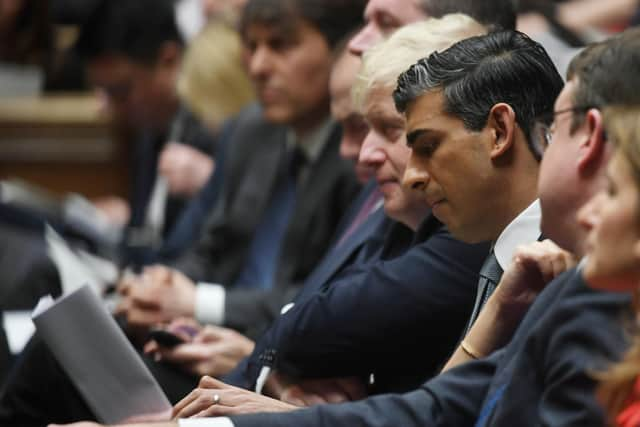Median earners 'will be £360 worse off in next 12 months', Institute for Fiscal Studies calculates
IFS director Paul Johnson said measures announced by Mr Sunak would not be enough to offset the expected fall in real earnings.
“It looks like a median earner on around £27,500 a year will be about £360 worse off in the next financial year than in the current year,” he said.
Advertisement
Hide AdAdvertisement
Hide Ad“Someone earning around £40,000 will be getting on for £800 worse off. As I’m sure everyone is now well aware the OBR are forecasting the biggest hit to real household disposable income per person since comparable records began in the 1950s."


He also said that Mr Sunak had done nothing for those dependent on benefits, thereby failing to protect the country's poorest households from the rising cost of living.
He warned that the inflation levels experienced by the poorest households would be even higher than the Office for Budget Responsibility was forecasting.
“While benefit levels will catch up with inflation next year, that will be of little comfort to those budgeting week to week or to those who are unemployed this year but not next year,” he said.
Advertisement
Hide AdAdvertisement
Hide Ad“It is hard to understand the lack of action on this front.”
Mr Johnson said the overall tax take would continue to rise.
"Mr Sunak has proved to be something of a fiscal illusionist," he said.
"He told us that he cut taxes yesterday. In a sense he did. He increased the floor for National Insurance Contributions and promised a cut in income tax in 2024. So Mr Sunak’s statement contained big new tax cuts. But it also allowed taxes to rise.
Advertisement
Hide AdAdvertisement
Hide Ad"He can now expect to raise more in tax as a share of national income by 2025 than he expected last October. In fact, taxes are set to rise to their highest level as a fraction of national income since Clement Attlee was prime minister."
Overall, Mr Johnson said the “inevitable pain” of the continuing “bad news” for the economy was being shared between public services and the taxpayer, with benefit recipients suffering in the short term.
“He had tough decisions to make. Other choices were available.”